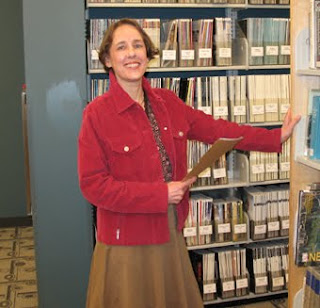Winifred Hughes
The Maniac in the Cellar: Sensation Novels of the 1860s (Princeton University Press, 1980)
by Winifred Hughes
USA, 1980
Whilst I probably won't be picking up another 600+ page Victorian novel anytime soon, some follow-up research on the sensation era was clearly in order after last week's The Woman in White post finally made me realize how many of my dear blog friends are absolutely enamored of literature from the land of football hooliganism! Winifred Hughes' The Maniac in the Cellar: Sensation Novels of the 1860s (sorry, no cover image to be found) turned out to be just the ticket for understanding you lot as it's a fine literary and social history of the era that reads well and gets its point across in a third of the usual triple-decker's time. Although Hughes is probably at her best writing about the tensions between the sensation novelists and their critics and what that has to say about their assumptions about the role of literature itself (no mean feat), I also enjoyed her thumbnail sketches of the personalities behind the pens (the eccentric Charles Reade, the devil-may-care M.E. Braddon) and her eschewing of literary theory in favor of close readings. If I may assume a Count Fosco tone for a moment, what a rare and utter pleasure it is to encounter what an academic has to share about what she thinks for a change rather than what she thinks Foucault or Lacan would think about the same material! (Princeton University Press, out of print)





Wow, impressive little auto-didact moment there, Richard! :-) This sounds interesting; I don't know that much about how sensation novels were viewed at the time. It's interesting that they seem to be experiencing a renaissance in the blogosphere right now.
ResponderBorrarThis book sounds really interesting! I'd love to learn more about the genre and how it fits into its time period. The book must be a great source of new authors to explore.
ResponderBorrarI love you Count Fosco-ish endorsement of this book!
ResponderBorrar*Emily: Thanks for the "auto-didact" props, which were richly undeserved but appreciated nonetheless! As I understand Hughes' telling of it, a lot of the anti-sensation novel sentiment had to do with its perceived lack of conformity with the previous models (gothic novels, Victorian melodramas) and with introducing too much "chance" and "amorality" into the developing "realist" framework. That the novels were big popular successes seems to have framed the pro- and con-arguments into something of a polemical dispute among the literati of the time. They do seem to be experiencing a renaissance in the blogosphere right now, don't they?
ResponderBorrar*Dorothy: I tend to favor more recent scholarship/criticism when I can find it, but this one came recommended and lived up to the hype. It was a great source of new authors for me, but I think people more up to speed on the era/genre in question might find it more interesting for the other reasons I've mentioned. Anyway, thanks for your comment and for dropping by the blog!
*Rebecca: Thanks--I'm having a terrible time saying goodbye to that character, so I had to find one more way to pay him my respects! P.S. Thanks for the visit!
I am absolutely desperate to read this book as I am a huge fan of sensation novels and this sounds thrilling.
ResponderBorrarSimon, I think you'd really enjoy this given your taste for sensation novels--good luck tracking down a copy. And thanks for the visit to the blog! I've been a "silent reader" over at your blog lately, but you have shamed me into popping over there and formally introducing myself. Cheers!
ResponderBorrar